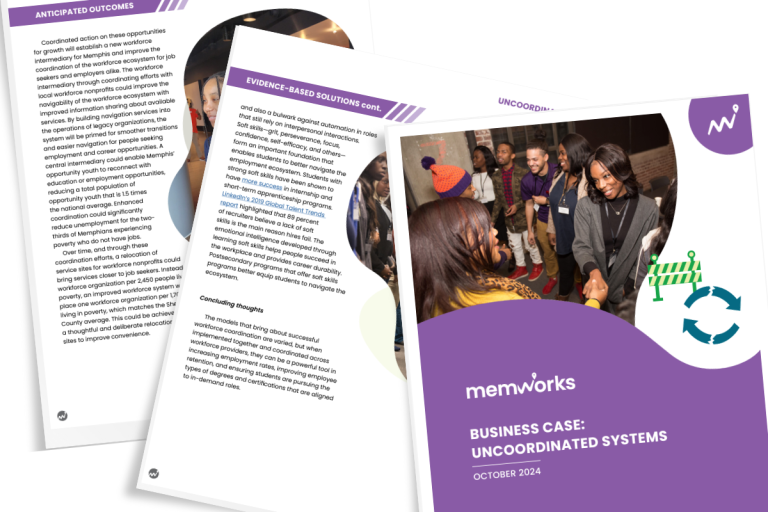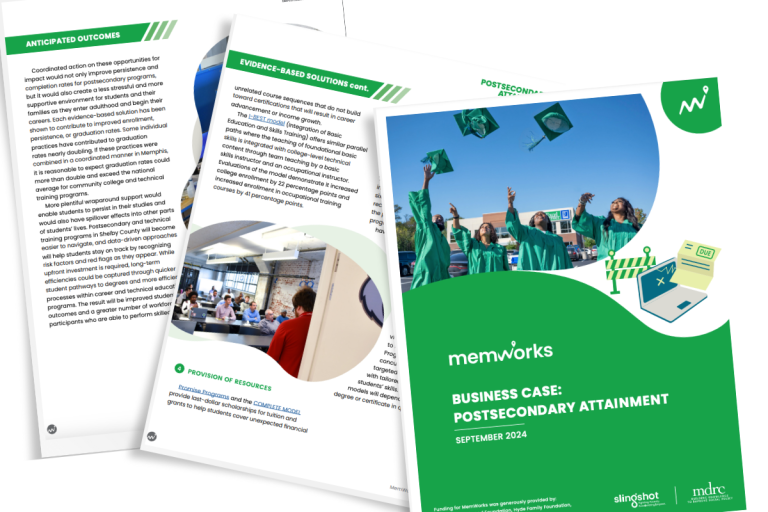Through our research, we identified several workforce organizations across the country, and the world, that are employing evidence-based practices that address the employment roadblocks MemWorks identified. Over the next several weeks, we will profile some of these organizations to share their impact and what we can learn from them that could help inform our efforts in Memphis.
Accelerated Study in Associate Programs (ASAP)
The City University of New York’s (CUNY) Accelerated Study in Associate Programs (ASAP) and Accelerate, Complete, Engage program (ACE) supports community college students in completing their Associate’s degrees through comprehensive academic, social, and financial assistance. Community college students experiencing poverty frequently do not continue after their first year because of numerous compounding factors, such as incidental life expenses and inefficient enrollment processes. The ASAP and ACE programs reduce postsecondary completion challenges for students.
The ASAP and ACE programs provide three core interventions. First, the programs provide financial resources like tuition waivers, textbook assistance, and MetroCards to help students manage costs. Second, structured pathways for academic momentum that are built around full-time enrollment and block scheduling help students stay on track. Third, comprehensive support services outside of the classroom provide personalized advising and tutoring to bolster students’ classroom success while addressing out-of-school roadblocks.
A study conducted by MDRC found that ASAP participants nearly doubled their graduation rates compared to a control group. Additionally, the ASAP model was replicated in Ohio and demonstrated similar academic achievements and increased earnings for participants over a six-year period.
A more structured and intentional approach to supporting students throughout their community college and technical training programs leads to improved program performance and higher postsecondary attainment.
Lessons for Memphis
Six in 10 Tennessee community college students experiencing poverty do not continue after their first year. The six-year community college graduation rate in Shelby County is 21 percent compared to the U.S. average of 42 percent. Implementing programs similar to CUNY’s ASAP and ACE within Memphis’ community colleges and technical training programs could help address the postsecondary attainment gap and send students on paths to living-wage careers.
The comprehensive support structure of ASAP could address financial and academic barriers that Memphis’ students encounter, which could improve college completion rates. Some of these efforts are already underway in Memphis through tnAchieves, but recruitment challenges persist. Expanding the scope and scale of the supports available through the ASAP and ACE programs would help us meaningfully address the postsecondary achievement roadblock.





